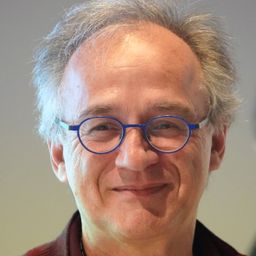
Mikaela Gallinger
Sessions auxquelles Mikaela Gallinger assiste
Lundi 29 Août, 2022
Industrialization processes have been global from their very beginning. However, their interpretation still tends to be limited to specific locations or regions, and to specific time periods. Regularly, for example, it is stated that the industrial revolution started in Europe, from where it spread to the world, supposedly bringing technological and social progress to „less developed“ countries. Earlier periods of technology and knowledge transfer processes, that were already in place in t...
This session presents case studies and policy reviews that contribute to ongoing debate and international dialogue on the role of planning systems and conservation practices in addressing the challenges of citizen engagement—conserving local interests, place attachments alongside physical remnants of industrial heritage. Over the past half century, we have witnessed the development and changing focuses of urban planning and conservation discourses addressing industrial heritage. Relevant p...
This session presents case studies and policy reviews that contribute to ongoing debate and international dialogue on the role of planning systems and conservation practices in addressing the challenges of citizen engagement—conserving local interests, place attachments alongside physical remnants of industrial heritage. Over the past half century, we have witnessed the development and changing focuses of urban planning and conservation discourses addressing industrial heritage. Relevant p...
Patrimoine industriel et photographie entretiennent des relations étroites. La photographie constitue une source de l’archéologie industrielle. Elle permet d’éclairer les liens entre les hommes, leurs outils, leurs machines et leurs lieux de travail. Elle est également, une fois l’activité industrielle terminée, un outil de documentation et d’étude des sites. Mais bien au-delà, saisie par des artistes capables de transcender les représentations communes, conférant aux vestiges industriels ...
Si la vallée du canal de Lachine a été le berceau de l’industrialisation canadienne, la géographie industrielle métropolitaine ne s’y est pas confinée, peu s’en faut, Outre les grandes concentrations d’entreprises des quartiers centraux, elle est constituée des réseaux infrastructuraux, d’une douzaine de centrales hydroélectriques et des ensembles manufacturiers disséminés dans une quinzaine de petites villes aujourd’hui intégrées dans l’aire métropolitaine. La conférence proposera un surv...
Joignez-vous à nous pour poursuivre de manière informelle la discussion lancée lors de la conférence publique.Une consommation sera offerte aux quinze premières personnes arrivées.
Mardi 30 Août, 2022
Cette session nous permettra d’explorer à travers neuf cas d’études internationaux les différentes stratégies de mise en valeur de patrimoines industriels ainsi que leurs impacts sur les communautés et leur territoire. L’analyse de musées, d’espaces culturels, de parcours et d’aménagements urbains sera l’occasion de mettre en relief les questionnements d’identité, de sens, de pertinence et d’impacts qui animent l’ensemble des acteurs de ce patrimoine en transformation. ...
It is widely accepted that understanding a historic place is a critical first step to guide subsequent management and conservation. Industrial sites present a number of challenges as understanding their form, function, design, boundaries, and conservation often requires a high degree of technical expertise and experience. In Canada, gaining this expertise and information sharing is hampered by a limited number of institutions offering training in industrial archaeology and the lack of a na...
It is widely accepted that understanding a historic place is a critical first step to guide subsequent management and conservation. Industrial sites present a number of challenges as understanding their form, function, design, boundaries, and conservation often requires a high degree of technical expertise and experience. In Canada, gaining this expertise and information sharing is hampered by a limited number of institutions offering training in industrial archaeology and the lack of a na...
Pays continent, dont l’industrialisation s’est amorcée dès le 19e siècle, le Canada a vu à la faveur entre autres de la désindustrialisation et de la requalification urbaine, des pans importants de son patrimoine industriel être altérés ou encore détruits. Cela étant dit, même ainsi, il n’en demeure pas moins que ce pays possède encore aujourd’hui un patrimoine industriel significatif. Or, le Canada étant une confédération, la protection et la sauvegarde de cet héritage industri...
Past efforts to conserve and interpret industrial heritage have rarely acknowledged the role of industry causing damaging environmental change. But todays obvious worldwide climate change inevitably impacts our thinking about conservation. This is why we propose a Roundtable session to encourage people to take a fresh look at environmental impacts of industrial heritage.Already in the 1970s narratives of industrial history as a succession of triumphs began to be qu...
Cette session nous permettra d’explorer à travers neuf cas d’études internationaux les différentes stratégies de mise en valeur de patrimoines industriels ainsi que leurs impacts sur les communautés et leur territoire. L’analyse de musées, d’espaces culturels, de parcours et d’aménagements urbains sera l’occasion de mettre en relief les questionnements d’identité, de sens, de pertinence et d’impacts qui animent l’ensemble des acteurs de ce patrimoine en transformation. ...
Les efforts visant à préserver le patrimoine industriel s'inscrivent dans un contexte socio-économique et politique précis. Mais qu'est-ce qui est préservé et pour qui ? Et, par ailleurs, quelle est la relation entre les sites du patrimoine industriel et les communautés ouvrières soumises à la désindustrialisation qui les jouxtent souvent ? Steven High examinera les façons dont la préservation du canal de Lachine à Montréal, le principal site du patrimoine i...
Mercredi 31 Août, 2022
L’Amérique du Nord compte un grand nombre de canaux historiques, qui ont été fermés à la navigation commerciale en raison notamment de l’évolution des transports (navire au plus fort tonnage, trains, camions, etc.). Si certains canaux historiques ont été comblés, oubliés ou désaffectés, plusieurs ont survécu, en entier ou en partie, devenant des sites patrimoniaux attractifs. Pour certains d’entre eux, le défi consiste à conjuguer la préservation des composantes historiques avec la nécessi...
L’Amérique du Nord compte un grand nombre de canaux historiques, qui ont été fermés à la navigation commerciale en raison notamment de l’évolution des transports (navire au plus fort tonnage, trains, camions, etc.). Si certains canaux historiques ont été comblés, oubliés ou désaffectés, plusieurs ont survécu, en entier ou en partie, devenant des sites patrimoniaux attractifs. Pour certains d’entre eux, le défi consiste à conjuguer la préservation des composantes historiques avec la nécessi...
This session addresses a perpetuating disjunction between conceptualisation of heritage and heritage making in heritage studies vis-a-vis heritage management and conservation of industrial heritage sites. There is an inevitable impact of this disjunction on advancing policy in people- and place-centred approaches to heritage futures. This session aims to explore ways in which tangible and intangible traces of the past can be utilised creatively in shaping desirable places to dwell and work...
In this lecture, I would like to talk about deindustrialised communities, heritage and memory in the context of right-wing populism. Drawing on studies of memory and heritage, I argue that right-wing populists have cornered the market on talking about the past of deindustrialised communities. They have successfully misrepresented this rich and complex history to fuel rage, resentment, fear and reactionary nostalgia. Indeed, ‘the past’, and in particular the industr...
Jeudi 1 Septembre, 2022
De sa construction à sa restauration, plongez dans l’histoire et le présent de ce lieu incontournable du patrimoine industriel canadien. Voie maritime centrale au pays, port intérieur majeur, le Lowell canadien (recours à l’énergie hydraulique), berceau de l’industrialisation, Smokey Valley (recours à la vapeur), haut lieu de l’industrie manufacturière, le canal de Lachine est tout cela et plus encore. Car, il est également un lieu historique national où, depuis la réouverture du canal à l...
The proposed session will examine the unfolding relationship between industrial heritage and those left behind in adjoining deindustrialized working-class areas. The four papers seek to understand the socio-economic and political impact of recognizing the industrial past in the present. Two guiding questions will be asked. Can industrial heritage support those ‘left behind’ in deindustrialized areas where nothing, or very little, has filled the economic or cultural vacuum? Has industrial h...
The Bata Company, which evolved from a small workshop in Zlin in the former Austro-Hungarian Empire, today being part of the Czech Republic, at the end of the 19th century, became one of the best-known largest shoe producers in the world in the second half of the twentieth century. The company was not characterised by the unique organisational structure and implementation of disruptive innovations only. Also, it is connected with significant investments in the social life of its employees....
Transportation and distribution have served as the secondary component to significant industrial expansion after energy and power transformed modes of production. Expanding production permitted increases in output demanding a means to both bring new materials into industrialized regions and export products to markets. Canals and shipping provided the earliest forms of bulk transportation but were limited by capacity, geography, and envir...
Transportation and distribution have served as the secondary component to significant industrial expansion after energy and power transformed modes of production. Expanding production permitted increases in output demanding a means to both bring new materials into industrialized regions and export products to markets. Canals and shipping provided the earliest forms of bulk transportation but were limited by capacity, geography, and envir...
The Bata Company, which evolved from a small workshop in Zlin in the former Austro-Hungarian Empire, today being part of the Czech Republic, at the end of the 19th century, became one of the best-known largest shoe producers in the world in the second half of the twentieth century. The company was not characterised by the unique organisational structure and implementation of disruptive innovations only. Also, it is connected with significant investments in the social life of its employees....
The proposed session will examine the unfolding relationship between industrial heritage and those left behind in adjoining deindustrialized working-class areas. The four papers seek to understand the socio-economic and political impact of recognizing the industrial past in the present. Two guiding questions will be asked. Can industrial heritage support those ‘left behind’ in deindustrialized areas where nothing, or very little, has filled the economic or cultural vacuum? Has industrial h...
Si le blé occupe une place mythique dans l’histoire de l’industrie au Canada, le pain et la boulangerie n’ont pas suscité le même intérêt. Témoin de l’époque artisanale, puis de l’industrialisation, le secteur du pain connaît aujourd’hui un retour à des modes de production préindustriels, dans la foulée de la « glocalisation » qui caractérise plusieurs produits alimentaires. Les études consacrées à la fabrication du pain se sont surtout intéressées au monde rural et à l’époque préindustrie...
This lecture will argue that the landscapes of industrial heritage that can be found in different parts of the world are directly related to the place-specific trajectories of deindustrialization. In other words: the different ways in which deindustrialization impacts on local communities has a direct bearing on the emergence of forms of industrial heritage. I will differentialte between deindustrialization paths and related industrial heritage regimes in a) Anglo-...
Vendredi 2 Septembre, 2022
At every World Congress, the international TICCIH community celebrates a General Assembly of its members. The event is open for any registered member of TICCIH, as well as the wider public. According to the current TICCIH Statutes (https://ticcih.org/about/statutes/), however, only Na...
In the refusal of people in communities abandoned by industrial capital to abandon their own places, we can read an implicit critique of the mobility and unaccountability of capital, raised by those who were once inside (however tenuously or uncomfortably) and now find themselves marginalized, “left behind.” The desire to catch up again, whether through attracting new investment or transvaluing abandoned sites as tourist attractions, makes this an essentially conservative critique that is ...





